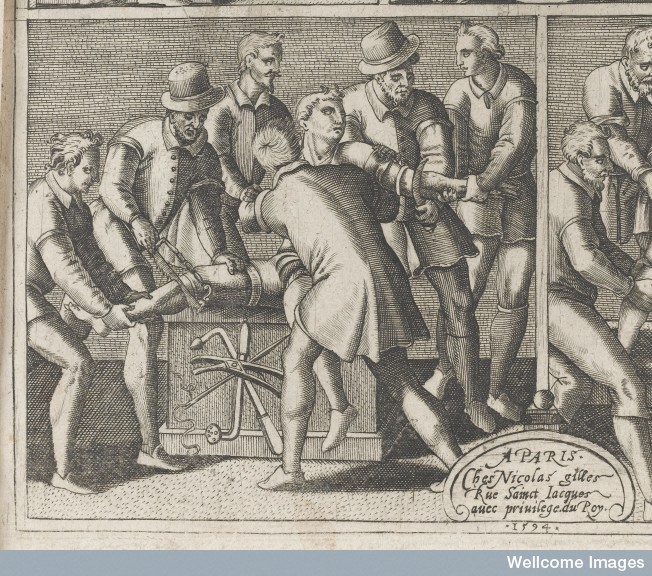
I am currently reading the diary of Richard Kay a doctor in Lancashire born in 1716 and practicing medicine, with this father, in the 1740s (you can find out more about Richard and his family here). Kay’s diary is interesting for a number of reasons including the details he provides about family rallying around when people are ill. But what I’m currently finding most interesting is his apparent internal struggle to be good at his occupation. He was learning throughout the early part of the diary and notes several times concerns about his actions.
On September 6 1740 he recounted in the diary that
This Day I’ve been attending on necessary Affairs; In giving Father an Account this Evening of the Patients I have been concerned for to Day, and some Doses of Physick I made up this Week which I had not given him account of before he has blamed me very much for prescribing as he fears a few Grains too large a Quantity of Calomel. Sextus Sublimatus to a Man at a considerable Distance of a very Strumous Habit; It happen’d thro’ Mistake, I am no little uneasy about it, but I hope it will be a Means to make me very careful for the future, and hope by God’s Blessing it will success well, the Quantity exceeded not 15 Grains. Lord Give me Skill in Nature, and Skill in Surgery and Physick.1
Three years later Richard was evidently struggling with another aspect of medical practice – bedside manner. He recorded that on 27 June after a long day treating a range of difficult patients (difficult in terms of their condition not their temperament) he went to Manchester to hear a lecture on mechanics. As he was in the right area, his father asked him to stop in on Martha Peake near Blackfordbridge who have been a log time confined to her house by a Spina Ventosa – now understood as a rare skeletal form of tuberculosis. He didn’t mention what he did during the consultation but noted that
I understand since my Return her Sister who lives with her hath been here upon my Account of being there, I’m afraid I’ve either said or done something amiss
This was the reason he said for the detailed diary entry explaining the various patients he had treated that morning. These included a man whose Gluteus Medius (a muscle across the thigh bone) had been cut, a scrofulous tumour in the shoulder, a ‘strumous’ tumour in the leg ‘infested with Pus from near Ham to Heel’, a broken arm, a broken thigh, and many others. He continued “we have to deal with different Persons under different and difficult Disorders, so how difficult it must be to know how to behave and speak as to give suitable and proper Satisfaction. Lord, Give me that Judgement and Prudence which is at all Times necessary’.2 Two days later he found out his transgression. His father informed him that he had ‘discourag’d her in saying something about Amputation’. Given the excruciating and dangerous
nature of amputation in this era it is little wonder that his throwaway comment had upset the patient. This particular doubt about his abilities plagued him just as he was arranging to spend a year in London at Guy’s Hospital to improve his knowledge of medical practice.3 On 1 August he set off to London and because a pupil of Mr Steade, apothecary at the hospital.4 Within days he noted that he had observed an amputation and ‘other curious Operations’ and entreated God to help him make ‘a suitable Improvement’ in his abilities.5 By the 26 of August he was convinced that ‘being here is being at the Fountain Head for Improvement’.6
Kay’s diary is a fascinating insight into the ways in which one man perceived his own medical abilities and failings, and how how continued to strive to improve his knowledge and practice year on year. It also shows the difficulties inherent in dealing with a range of different people suffering, as Richard said, from a range of rather complex and difficult medical conditions.
____________
- W. Brockbank and F. Kenworth, The Diary of Ricahrd Kay a Lancashire Doctor, 1716-51, p. 38.
- Ibid, pp. 63-4.
- Ibid, p. 63.
- Ibid, p.66.
- Ibid, p. 68.
- Ibid, p. 70.
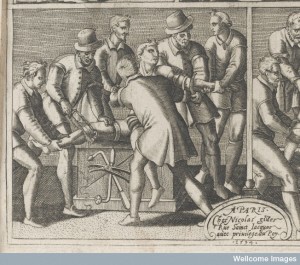
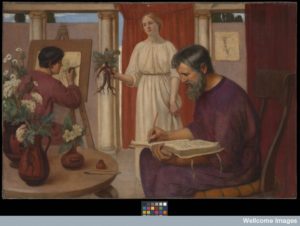
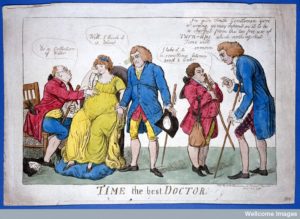
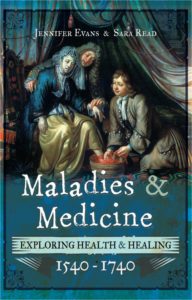
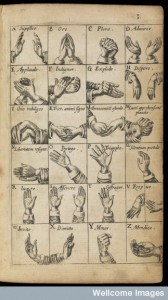
Fascinating, thanks for sharing! Do you frequently find religious vernacular in 18thc doctor diaries? (i.e., prayers, entreaties)
Yes, very common in seventeenth century and still there in the eighteenth, although less often.
The far fuller manuscript version (Manchester Public Library, as I recall) is a great deal more interesting, than the short printed one, not least because there is a great deal more religion, enabling the reader to get much closer to his religious views. also more detail of his medical practice.
I hope I can get to that one day, he is an intriguing character and it would be great to read a fuller version of the diary